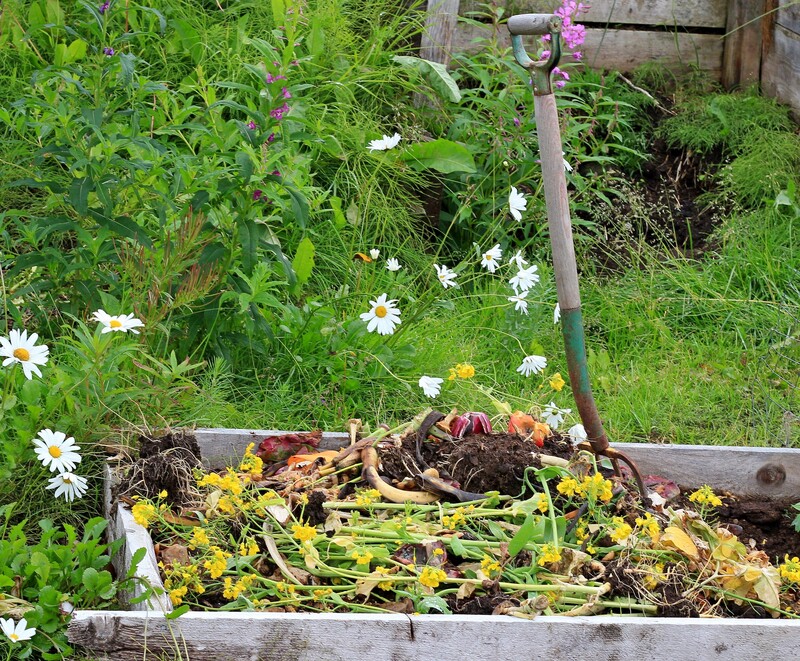Save Cash by Handling Bulky Waste Items the Right Way
Dealing with large, unwanted items can be a daunting and expensive task. However, learning the most efficient and budget-friendly ways to get rid of bulky waste doesn't just save you money—it also helps keep your community clean and eco-friendly. In this comprehensive guide, you'll discover smart strategies for handling bulky waste items, tips for reducing disposal costs, and environmentally responsible alternatives to tossing them in a landfill. Let's dive into the ultimate guide on how to save cash by managing bulky waste effectively!
Understanding Bulky Waste and Its Impact
Before exploring cost-saving disposal methods, let's clarify what constitutes bulky waste.
What Are Bulky Waste Items?
- Furniture: Sofas, beds, wardrobes, dining tables, chairs
- Appliances: Refrigerators, ovens, washing machines, air conditioners
- Large garden waste: Branches, timber from felled trees, old garden sheds
- Mattresses and carpets
- Fitness equipment and bicycles
- Renovation debris: Bathtubs, sinks, doors, large tiles
Bulky waste is defined by its size and weight, making standard curbside pickup impractical or impossible. That's why disposing of it improperly can lead to extra fees, fines, or even environmental hazards.

Why Is Proper Bulky Waste Disposal Important?
- Financial savings: Avoiding dumping fines and extra hauling fees saves cash in your pocket.
- Environmental responsibility: Recycling and repurposing help conserve resources and reduce landfill use.
- Community cleanliness: Curbside dumping of large items can hinder walkways and attract pests.
How to Save Cash by Handling Bulky Waste Items the Right Way
Instead of paying hefty removal fees or risking fines, take charge of your bulky waste. Here are actionable steps to manage these items affordably and responsibly.
1. Check Local Council Bulky Waste Collection Services
Most towns and cities offer a free or low-cost bulky waste collection service. Check your local council's website for details such as accepted items, scheduled collection dates, and booking procedures. You may benefit from:
- Annual or biannual free pickups (limits may apply)
- Discounted rates for residents
- Guidelines on how to prepare items for collection
Tip: Booking your pickup directly with the council is often much cheaper than hiring a private company.
2. Donate or Give Away Usable Items
Charity shops, shelters, and reuse organizations often welcome second-hand furniture, appliances, and other large items. Many charities offer free collection for quality goods, especially if they're in usable condition.
- Contact local thrift stores or non-profits to arrange a pickup.
- List items on Freecycle, Facebook Marketplace, or Gumtree as "free for collection."
- Organize a garage sale to offset disposal costs and help your community.
Donating or giving away bulky items is a win-win: you save money on disposal, and someone benefits from your unwanted goods.
3. Sell Your Old Bulky Items
One of the smartest ways to handle bulky waste and save (or even earn) cash is by selling what you no longer need! Many people are looking for affordable, gently-used furniture or appliances:
- Take clear, appealing photos of your items.
- List on eBay, Craigslist, Facebook Marketplace, or local classifieds.
- Be transparent about dimensions and condition.
Always specify that buyers are responsible for pickup. This eliminates your moving costs and puts cash in your wallet.
4. DIY Dismantling and Drop-Off
When large items can't be donated or sold, consider transporting them to a designated waste center. Most civic amenity sites accept bulky items and charge substantially less than hiring a private removal service.
- Dismantle furniture or equipment to fit into your vehicle or reduce payload size.
- Check if your local tip has restrictions, opening hours, or fees before visiting.
- Bring proof of residency—many centers offer discounts or free disposal for locals.
Dismantling and self-hauling may require tools and effort, but the savings on professional removal can be significant!
5. Upcycle or Repurpose Bulky Waste
Before throwing away large items, ask yourself: *Can I repurpose these materials or pieces?* Upcycling is both eco-friendly and money-saving:
- Turn pallets into garden furniture or compost bins.
- Transform old doors into shelving or headboards.
- Use timber or metal scraps for DIY projects or repairs.
With a bit of creativity, you can reduce waste and create something valuable—without paying any disposal fees.
Beware of Illegal Dumping: It Will Cost You More
Never be tempted to dump bulky waste illegally. Local authorities impose stiff fines on fly-tipping (illegal dumping) as it blights neighborhoods and damages the environment.
- Fines can range from hundreds to thousands of dollars.
- It reflects poorly on your reputation and community spirit.
- Many councils are ramping up surveillance and reporting measures.
Always dispose of bulky waste with responsibility and legality in mind. It's cheaper and more ethical in the long run!
Hire a Professional Only When Necessary
Sometimes, commercial or hazardous bulky waste (e.g., asbestos, large machinery) requires professional removal. Even then, there are smart ways to save money:
- Get multiple quotes and compare services.
- Combine jobs with neighbors to split transportation fees.
- Verify that the company is licensed and insured—this protects you from liability and hefty fines.
If you're dealing with general household bulky waste, a professional should be your last resort—not your go-to solution.
The Ultimate Bulky Waste Money-Saving Checklist
Here's a handy checklist to make sure you're saving cash and handling bulky waste the right way:
- Inventory your bulky items and sort by condition—decide what can be sold, donated, or repurposed.
- Contact your council to check for free or discounted collection dates and guidelines.
- Arrange for donation or sale before collection—this could turn your waste into profit or a charitable act.
- Dismantle what you can to save space and reduce transport costs.
- Load your vehicle efficiently if self-hauling to minimize trips and fuel usage.
- Make use of recycling centers for metal, wood, and other recyclable materials.
- Book a responsible professional only if all other options fail, and always check credentials.
Environmentally Responsible Bulky Waste Disposal: Why It Matters
Being money-smart about bulky waste is good, but protecting the planet makes it even better. Landfills are overflowing, and many large waste items can hurt the environment if not disposed of responsibly:
- Appliances may leak harmful chemicals or refrigerants.
- Mattresses and furniture can take years to decompose.
- Many materials (wood, metal, textiles) are easily recycled—reducing natural resource demand.
Every time you recycle, donate, or upcycle, you play a part in building a cleaner, greener planet.
Smart Tips for Special Bulky Waste Items
- Mattresses: Many retailers offer removal when you buy a new one. Some councils or recyclers have dedicated mattress recycling programs.
- White goods (appliances): Remove doors for safety, drain fluids, and check with the manufacturer for take-back or recycling incentives.
- Construction debris: Local hardware stores may rent dumpsters for shared use or advise on recycling options.
- Garden waste: Chop branches into smaller pieces for easier handling. Many councils collect green waste separately for composting.
Frequently Asked Questions: Save Cash by Handling Bulky Waste the Right Way
How can I find out about council collection dates in my area?
Visit your local council's website or call their waste management hotline. Many councils publish schedules for bulky waste collection and offer online booking forms.
Can I recycle all bulky waste?
No. Some items (e.g., mattresses, composite materials, certain plastics) require specialist facilities. Always check with recycling centers to ensure safe, legal, and efficient disposal.
Is it worth hiring a skip for my bulky waste?
If you have a large volume from renovations or spring cleaning, renting a skip can be cost-effective. However, check what's permitted in skips and compare costs with council or charity pickups.
What if I have a mix of recyclable and non-recyclable bulky waste?
Sort your items before disposal. Recyclable materials (metal, timber, some plastics) can be delivered to recycling centers, while general waste may require separate handling.

Conclusion: Save Cash and Help the Planet by Handling Bulky Waste Responsibly
Save cash by handling bulky waste items efficiently and legally—your wallet, your neighborhood, and the environment will thank you. Whether you donate, sell, repurpose, or recycle, every responsible effort counts. Avoid unnecessary expenses, steer clear of fines, and transform what many see as "junk" into valuable resources or opportunities for others.
Remember, when you handle large waste items the right way, you're not just saving money—you're making a positive impact. Start today by sorting your bulky items and choosing the disposal route that saves you the most cash while doing the most good!
Action Steps to Start Saving on Bulky Waste Disposal Today
- Audit your home for large, unneeded items.
- Contact local authorities or charities for collection services.
- Share or resell what you can; recycle or upcycle where possible.
- Only pay for removal when you have no other alternatives.
By making these smart choices, you'll keep cash in your pocket while keeping your community clean and green!